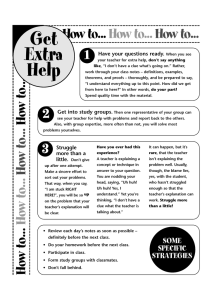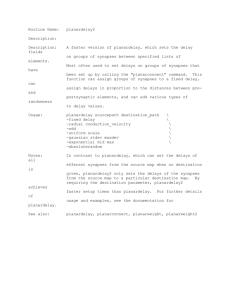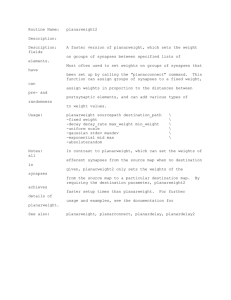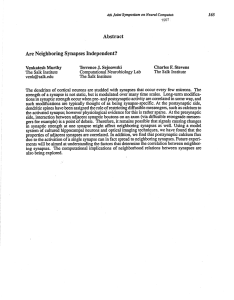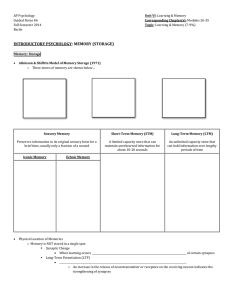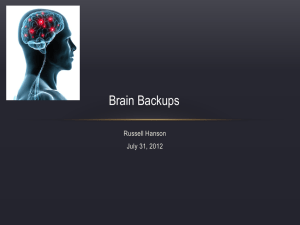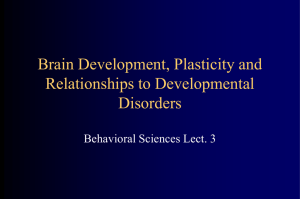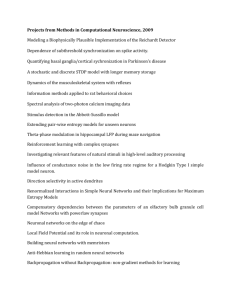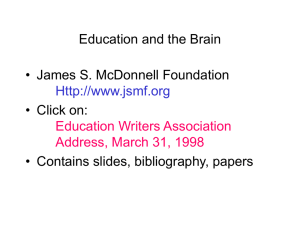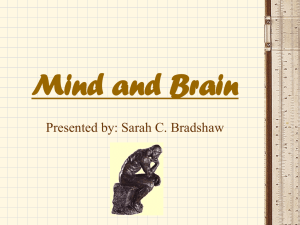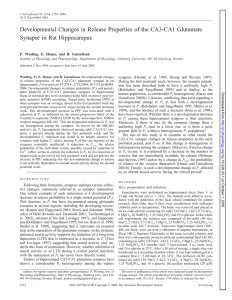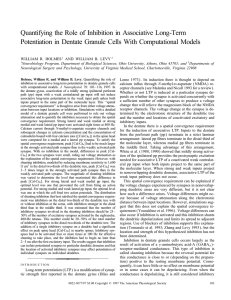How to Study Physics Bruce Rosenblum, Ph.D. Professor of Physics
advertisement
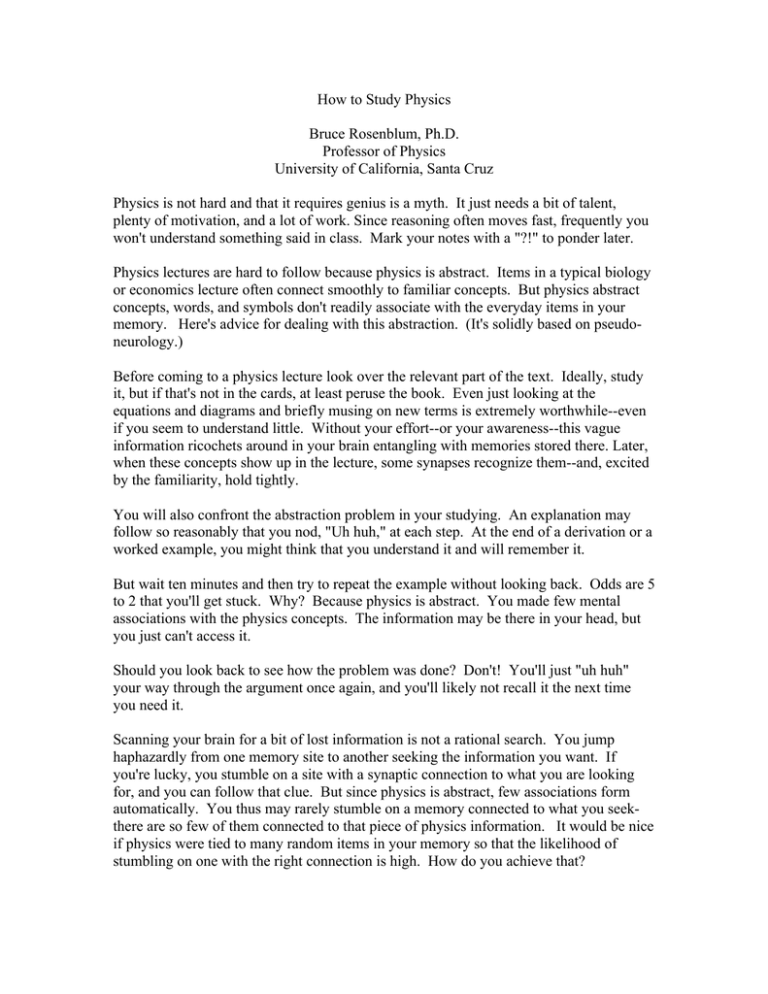
How to Study Physics Bruce Rosenblum, Ph.D. Professor of Physics University of California, Santa Cruz Physics is not hard and that it requires genius is a myth. It just needs a bit of talent, plenty of motivation, and a lot of work. Since reasoning often moves fast, frequently you won't understand something said in class. Mark your notes with a "?!" to ponder later. Physics lectures are hard to follow because physics is abstract. Items in a typical biology or economics lecture often connect smoothly to familiar concepts. But physics abstract concepts, words, and symbols don't readily associate with the everyday items in your memory. Here's advice for dealing with this abstraction. (It's solidly based on pseudoneurology.) Before coming to a physics lecture look over the relevant part of the text. Ideally, study it, but if that's not in the cards, at least peruse the book. Even just looking at the equations and diagrams and briefly musing on new terms is extremely worthwhile--even if you seem to understand little. Without your effort--or your awareness--this vague information ricochets around in your brain entangling with memories stored there. Later, when these concepts show up in the lecture, some synapses recognize them--and, excited by the familiarity, hold tightly. You will also confront the abstraction problem in your studying. An explanation may follow so reasonably that you nod, "Uh huh," at each step. At the end of a derivation or a worked example, you might think that you understand it and will remember it. But wait ten minutes and then try to repeat the example without looking back. Odds are 5 to 2 that you'll get stuck. Why? Because physics is abstract. You made few mental associations with the physics concepts. The information may be there in your head, but you just can't access it. Should you look back to see how the problem was done? Don't! You'll just "uh huh" your way through the argument once again, and you'll likely not recall it the next time you need it. Scanning your brain for a bit of lost information is not a rational search. You jump haphazardly from one memory site to another seeking the information you want. If you're lucky, you stumble on a site with a synaptic connection to what you are looking for, and you can follow that clue. But since physics is abstract, few associations form automatically. You thus may rarely stumble on a memory connected to what you seekthere are so few of them connected to that piece of physics information. It would be nice if physics were tied to many random items in your memory so that the likelihood of stumbling on one with the right connection is high. How do you achieve that? Here's the trick: When you're stuck, don't look back at the book. Make your brain struggle! Even if you know you won't find the answer. At this point, struggling is the end in itself. Your search will poke at many possibly-relevant neurons. That excites them, their synapses begin to wave furiously. (It's a mildly painful experience.) And while you're doing this, focus your search. The best way to find a needle in a haystack is to think hard about just what a needle in the hay would look like. Ask yourself: "Exactly what is it that I don't understand?" Be specific--tell yourself as precisely as you can what it is you need to know. Imagine a friendly expert on the phone; what general question would you ask? After at least ninety seconds of such intense exertion, go ahead and look up the answer. At this point, when you see it, you won't nod "Uh huh." It will be "Ah hah!" And now all those random synapses you caused to wave furiously will latch onto this physics item. The correct reasoning now entangles with a vast number of your stored memories. Next time you search for this concept, just get anywhere in the neighborhood, and one of these entangled synapses will clue you towards it. Psyche yourself up to feel a burst of pleasure with that "Ah hah!" (It should be at least as enjoyable as stopping banging your head against a wall.) Also, occasionally try to see just what it was that gave you trouble. You might this way improve your initial approach to material. After you figure out how to solve a problem you had trouble with, try to figure out the generic nature of your difficulty. Did you not read the stated problem carefully enough? Maybe you started without a careful reading of the relevant material. Or did you not have a systematic enough approach, i.e., did you write down the relevant fundamental equations and list the known and desired quantities? If you find the same generic problem repeating itself, you will discover what in your approach needs adjusting. You will, of course, do a lot of studying alone. But a great way to develop a clear understanding of something in physics is to explain it to someone else. In physics you often get hung up on small but crucial points, but since one person's hang-up is usually not the other's, people working together make rapid progress. And it can be fun. Find some compatible study companions. And make use of discussion sections and office hours! Physicists at all levels do much of their work in groups. Physics is a social science. Finally, for some unfortunate people (including me) the process of learning will always be painful. We make up for it by especially enjoying the understanding.
